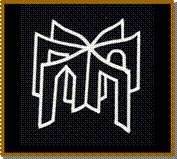El (re)conocimiento de la madre en La mitad del alma
Palabras clave:
Carme Riera, La mitad del alma, Madre, Hija, Metis, Atena, Mito, Escritura, Memoria, Reconocimiento / Carme Riera, Mother, Daughter, Athena, Myth, Writing, Memory, Recognition.Resumen
Resumen:
La mitad del alma de Carme Riera, en que C rememora a su madre, enfatiza la importancia del reconocimiento de las mujeres en la memoria histórica. Desde el mito griego de Atena, quien ignoraba a su madre Metis, la sociedad patriarcal ha excluido a la madre, lo cual promete que la hija conlleve negación también, según Amber Jacobs en On Matricide. Jacobs observa que en La Oresteia hay crímenes sancionados contra las mujeres, las hijas están deprimidas, existe incesto contra la hija, la reproducción familiar se paraliza, toda la sociedad sufre y la hija se desperdicia también cuando la madre es menospreciada. Jacobs afirma que este desprecio de la madre que transcurría en los mitos griegos continúa en la sociedad y la psicología hoy en día. En esta novela de Riera, la hija protagonista, quien desconoce a su madre, sufre de un estado depresivo, la falta de creatividad y una conexión demasiado fuerte con su padre, semejante a lo que Jacobs observa en los mitos, pero la escritura de C sobre su madre la integrará en la consciencia y mejorará la situación de la hija y, últimamente, la de toda la civilización.
Summary:
Carme Riera‟s La mitad del alma, in which C recollects her mother, emphasizes the importance of the recognition of women in historic memory. Ever since the Greek myth of Athena, who was ignorant of the existence of her mother, Metis, patriarchal society has excluded the mother, a fact which promises that the daughter will also experience negation, according to Amber Jacobs in On Matricide. Jacobs observes that in La Oresteia there are sanctioned crimes against women, the daughters are depressed, there is incest against the daughter, she is dishonored, family reproduction stops, and all of society suffers when the mother is not appreciated. Jacobs affirms that the distain of the mother that took place in Greek myths continues in society and psychology today. In this novel by Riera, the protagonist/daughter, who does not know much about her mother, suffers from depression, lack of creativity, and an overly strong connection with her father, similar to what Jacobs has observed in myths. However, C‟s act of writing about her mother integrates her into C‟s consciousness, improving the situation of the daughter and, ultimately, that of all of civilization.
Referencias
Aeschylus. The Oresteia: Agamemnon, The Libation Bearers, The Eumenides, Robert Fagles (Trad.), Penguin, London, 1979.
Amat, Nuria. La intimidad, Alfaguara, Madrid, 1997.
Andreu, Jerónimo. “Sangre de mujer”, El País, Edición nacional, 4-01- 2009, “Domingo”, págs. 2-5.
Apollodorus. The Library of Greek Mythology, Robin Hard (Trad.), Oxford University Press, Oxford, 1997.
Arkinstall, Christine. “Towards a Female Symbolic: Re-Presenting Mothers and Daughters in Contemporary Spanish Narrative by Women”, Writing Mothers and Daughters: Renegotiating the Mother in Western EuropeanNarratives by Women, Adalgisa Giorgio (Ed.), Berghahn, New York, 2002, págs. 47-84.
Arnau, Carme. “La meitat de l’ànima: un segle laberíntic”, Diari Avui, publicación electrónica, 17-07-2004.
Bieder, Maryellen. “Carme Riera and the Paradox of Recovering Historical Memory in La meitat de l’ànima”, Visions and Revisions: Women’s Narrative in Twentieth Century Spain, Kathleen M. Glenn y Kathleen McNerney (Eds.), Rodopi, Amsterdam, 2008, págs. 169-190.
Cerezales, Cristina. De oca a oca, Destino, Barcelona, 2000.
Ciplijauskaité, Biruté. La novela femenina contemporánea: Hacia una tipología de la narración en primera persona (1970-1985), Anthropos, Barcelona, 1988.
Cotoner i Cerdo, Lluïsa. “Perspectivisme, tècnica i procediments narratius a La meitat de l’ànima de Carme Riera”, Revista de Catalunya, 220, 2006, págs. 41-52.
Davies, Catherine. “Feminist Writers in Spain Since 1900: From Political Strategy to Personal Inquiry”, Textual Liberation: European Feminist Writing in the Twentieth Century, Helena Forsås Scott (Ed.), Routledge, London, 1991, págs. 192-226.
Duplaá, Christina. “Interview with Carme Riera: „Teaching Literature Is Teaching the World‟”, Moveable Margins: The Narrative Art of Carme Riera, Kathleen M. Glenn, Mirella Servodidio y Mary S. Vásquez (Ed.), Bucknell University Press, Lewisburg, PA, 1999, págs. 58-62.
Etxebarria, Lucía. Un milagro en equilibrio, Planeta, Barcelona, 2004.
Everly, Kathryn. History, Violence, and the Hyperreal: Representing Culture in the Contemporary Spanish Novel, Purdue University Press, West Lafayette, IN, 2010.
García Morales, Adelaida. El Sur seguido de Bene, Anagrama, Barcelona, 1993.
Herzberger, David. Narrating the Past: Fiction and Historiography in Postwar Spain, Duke University Press, Durham, 1995.
Hesodo (Hesiod). Theogony, Works and Days, Shield, Apostolos N. Athanassakis (Trad. e intro.), Johns Hopkins University Press, Baltimore, 2004.
Jacobs, Amber. On Matricide: Myth, Psychoanalysis, and the Law of the Mother, Colombia University Press, New York, 2007.
Janer, María de la Pau. Las mujeres que hay en mí, Planeta, Barcelona, 2002.
Jofre Aparicio, Montserrat, y Samblancat Miranda, Neus. “La memoria en La meitat de l’ànima de Carme Riera”, Género y géneros, escritura y escritoras iberoamericanas, Ángeles Encinar, Eva Löfquist y Carmen Valcárcel (Ed.), Vol. 2, Universidad Autónoma de Madrid, Madrid, 2006, págs. 177-184.
Jung, C. G. Four Archetypes: Mother/Rebirth/Spirit/Trickster, R. F. C. Hull (Trad.), The Collected Works of C. G. Jung, 9.1, Princeton University Press, Princeton, 1992.
Labanyi, Jo. “History and Hauntology; or, What Does One Do With the Ghosts of the Past? Reflections on Spanish Film and Fiction of the Post-Franco Period”, Disremembering the Dictatorship: The Politics of Memory in the Spanish Transition to Democracy, Joan Ramón Resina (Ed.), Rodolphi, Atlanta, GA, 2000, págs. 65-82.
Laforet, Carmen. Nada, Destino, Barcelona, 1985.
López, Oscar. “Carme Riera: Palabras treinta años después”, Qué Leer, 96, 2005, págs. 52-55.
López-Cabrales, María del Mar. Palabras de mujeres: Escritoras españolas contemporáneas, Narcea, Madrid, 2000.
Martín Gaite, Carmen. El cuarto de atrás, Destino, Barcelona, 1982.
Martín Gaite, Carmen. Desde la ventana: Enfoque femenino de la literatura española, Espasa, Madrid, 1992.
Martín Gaite, Carmen. Usos amorosos de la postguerra española, Anagrama, Barcelona, 1987.
Matute, Ana María. Primera memoria, Destino, 1987.
“Millions of „Latino‟ immigrants boost Spain‟s low birthrate”, EUbusiness.com, 27-04-2008, EUbusiness Ltd., publicación electrónica, 10-07-2008.
Moix, Ana María. Julia, Seix Barral, Barcelona, 1970.
Montero, Rosa. Bella y oscura, Seix Barral, Barcelona, 1993.
Montero, Rosa. El corazón del tártaro, Espasa, Madrid, 2001.
VVAA. “La natalidad en España alcanza su récord desde 1991”, ELPAÍS.com., 3-07-2007, Diario El País, publicación electrónica, 10-07-2008.
VVAA. “La natalidad en España llega al nivel más alto de los últimos diez años”, ConsumerEroski, 29-07-2004, Fundación Eroski, publicación electrónica, 10-07- 2008.
Nogueira, Charo. “Aquí faltan 68 mujeres”, El País, 31-12-2006, Edición Madrid, pág. 50.
Puértolas, Soledad. Historia de un abrigo, Anagrama, Barcelona, 2005.
Ramblado-Minero, Cinta. “Novelas para la recuperación de la memoria histórica: Josefina Aldecoa, Ángeles
Chacón Caso; Dulce”, Letras Peninsulares 17.2-3, 2004-05, págs. 361-379.
Riera, Carme. La meitat de l’ànima, Proa, Barcelona, 2003.
Riera, Carme. La mitad del alma, Carme Riera (Trad.), Alfaguara, Barcelona, 2004.
Rodoreda, Mercè. La plaça del Diamante, Club, Barcelona, 1979.
Roig, Montserrat. L’hora violeta, Edicions 62, Barcelona, 1980.
Roig, Montserrat. Ramona, adéu, Edicions 62, Barcelona, 1972.
Roig, Montserrat. El temps de les cireres, Edicions 62, Barcelona, 1977.
Schumm, Sandra J. “Reparation to the Ghostly Mother in Carme Riera‟s La mitad del alma”, Symposium: A Journal in Modern Literatures, 62.3, 2008, págs. 139-58.
Schyfter, Sara E. “Rites without Passage: The Adolescent World of Ana María Moix‟s Julia”, The Analysis of Literary Texts; Current Trends in Methodology: Third and Fourth York College Colloquia, Randolph D. Pope (Ed.), Bilingual, Ypsilanti, 1980, págs. 41-50.
Stewart, Melissa. “Shifts in Textual Author(ity): Grappling with Unstable Identities in Carme Riera‟s La meitat de l’anima”, Letras Peninsulares, 19.2-3, 2006, págs. 235-242.
Tobío, Constanza. Madres que trabajan: dilemas y estrategias, Cátedra, Madrid, 2005.
Truxa, Silvia. Die Frau im spanischen Roman nach dem Bürgerkrieg, Vervuert, Frankfurt, 1982.
Tusquets, Esther. El amor es un juego solitario, Lumen, Barcelona, 1982.
Tusquets, Esther. Correspondencia privada, Anagrama, Barcelona, 2001.
Tusquets, Esther. El mismo mar de todos los veranos, Anagrama, Barcelona, 1990.
Descargas
Publicado
Número
Sección
Licencia

Tejuelo se publica bajo una licencia Creative Commons Reconocimiento-NoComercial-SinObraDerivada 3.0 España.


.jpg)



